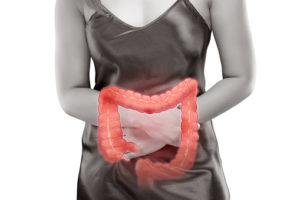 Diverticulitis is caused when the diverticula- irregular bulging pouches in the colon wall develop over time and become inflamed, tear, swell, and become infected. Diverticula can form due to spasms or straining.
Diverticulitis is caused when the diverticula- irregular bulging pouches in the colon wall develop over time and become inflamed, tear, swell, and become infected. Diverticula can form due to spasms or straining.
Pain in the lower abdomen is a common symptom of diverticulitis. Other symptoms include:
- Nausea and vomiting
- Fever
- Tenderness in the abdomen when touched
- Changes in stool which include constipation or diarrhea
- Rectal bleeding
- A distended abdomen
Diverticulitis is more common in people over 50. Other factors that put you at risk of diverticulitis include:
- Obesity
- Smoking
- A low-fiber diet
- A high-red meat diet
- Heavy alcohol use
- Lack of exercise.
- Low vitamin D levels
- Certain medicines such as steroids, opioids, and nonsteroidal anti-inflammatory drugs like ibuprofen and naproxen sodium.
Many conditions can cause pain and other symptoms related to diverticulitis. A healthcare provider will perform a physical exam where they gently touch different parts of the abdomen to learn where the pain and tenderness are.
They may also order laboratory tests to determine what is causing your symptoms and use them to rule out other conditions and make a diagnosis. These tests include:
- Blood tests for signs of infection and immune system activity.
- Urine test
- Stool test
- Pregnancy test
- Liver enzyme test to rule out liver disease.
A CT scan can show inflamed diverticula, abscesses, fistulas, or other complications.
There are many ways to help prevent diverticulitis including:
- Exercising regularly.
- Eating a high-fiber diet.
- Maintaining a healthy weight.
- Drinking plenty of fluids.
- Limiting alcohol use and quitting smoking.
Treatment for diverticulitis depends on the severity of the condition. Uncomplicated diverticulitis is when there are mild symptoms and no complications, and you can be treated at home. A healthcare provider will recommend a liquid diet and then a gradual increase to low-fiber solid foods. You may also be prescribed antibiotics.
Complicated diverticulitis is when the symptoms are serious and there are signs of complications. You will need to be in the hospital for treatment.
Surgery on the colon may be performed if complicated diverticulitis is diagnosed. Other reasons surgery may be needed include:
- Complications include ruptures in the colon wall, fistulas, or other serious tissue damage.
- There were multiple episodes of uncomplicated diverticulitis.
- You have a weakened immune system.
Surgery is usually performed laparoscopically. Two procedures used for treating diverticulitis include:
- The diseased section of the colon is removed. The remaining healthy tissues are connected to recreate a complete colon.
- The healthy section and the diseased section are separated. The healthy section is directed to an opening in the abdomen wall. Waste is collected using a colostomy bag giving the diseased section time to heal. When it is healed, the two sections are reconnected, and the opening in the abdomen wall is closed.
If you are experiencing signs and symptoms of diverticulitis and would like to schedule an appointment with a physician at Flushing Hospital, please call 718-670-5486.
All content of this newsletter is intended for general information purposes only and is not intended or implied to be a substitute for professional medical advice, diagnosis or treatment. Please consult a medical professional before adopting any of the suggestions on this page. You must never disregard professional medical advice or delay seeking medical treatment based upon any content of this newsletter. PROMPTLY CONSULT YOUR PHYSICIAN OR CALL 911 IF YOU BELIEVE YOU HAVE A MEDICAL EMERGENCY.

